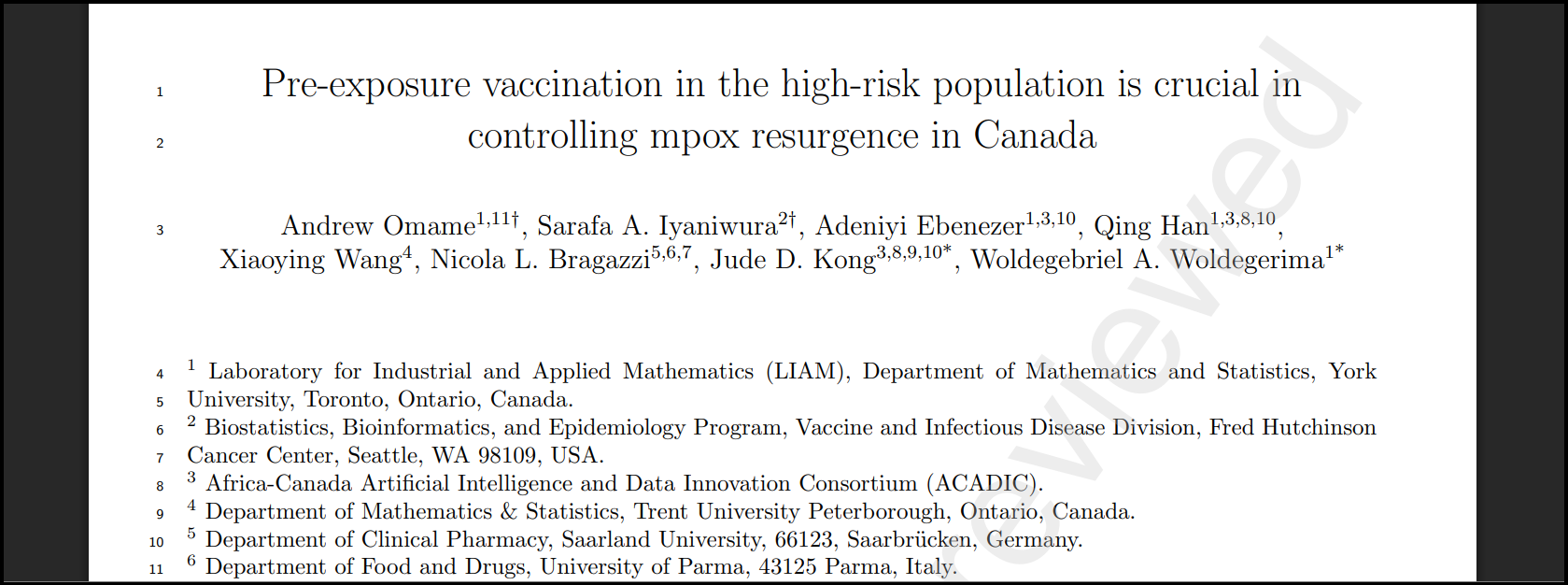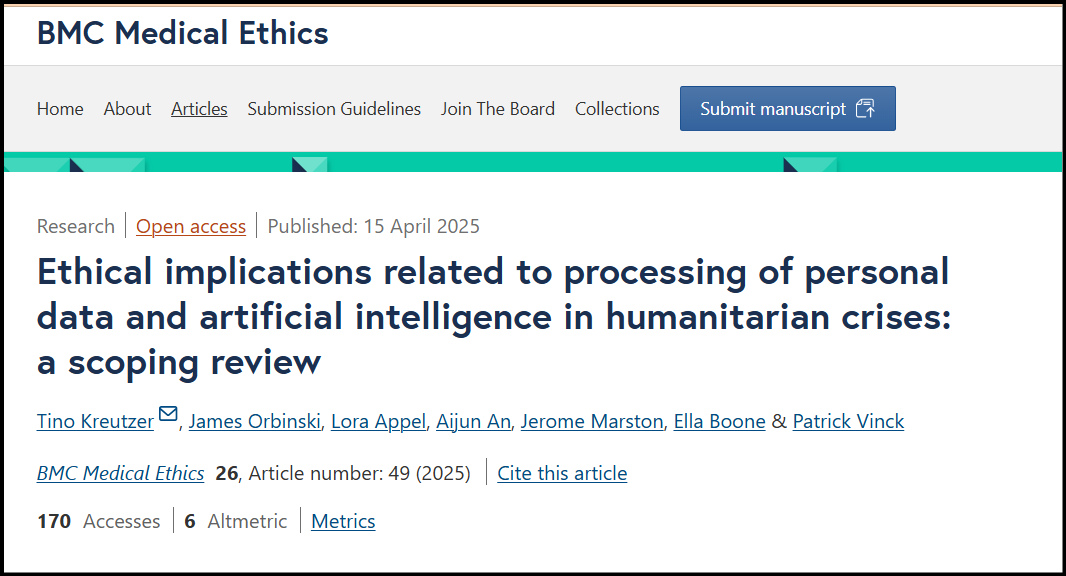
On April 25, 2025, Professor Jude Dzevela Kong was featured as a coauthor in a new paper published on SSRN, titled "Shifting from Margins to Momentum of the Global South Leadership in Responsible Artificial Intelligence Solutions for Health: Lessons from the UNGA79 Science Summit.." The study discusses how spatial indicators can provide critical early warnings of approaching regime shifts in complex systems. He highlighted that understanding these signals could play a vital role in mitigating societal and environmental risks. Read More

On April 10, 2025, Professors Jude Dzevela Kong and Woldegebriel Assefa Woldegerima, both Y-EMERGE members, were featured as co-authors in SSRN for their publication “Forecasting COVID-19 Indicators Using Spatial and Temporal Deep Learning Models.” The study explores the use of advanced deep-learning techniques to enhance the accuracy of COVID-19 trend forecasting across different regions. It underscores the potential of AI-driven models in supporting data-informed decision-making during public health emergencies. Read More

On April 10, 2025, Professor Jude Dzevela Kong was featured as a co-author in SSRN, contributing to the publication “Hierarchical Spatial Models for Pandemic Early Warning and Resource Allocation: A Case Study of COVID-19 in South Africa.” The study presents innovative spatial modeling approaches to strengthen early warning systems and improve resource allocation during public health crises. It highlights the value of incorporating geographic variability into pandemic preparedness strategies. Read More

On April 4, 2025, a recent publication in BMC Medical Ethics featured Professor Aijun An as a co-author in a comprehensive scoping review on bias in artificial intelligence (AI) models used in healthcare. The paper critically examines how bias can influence outcomes in AI-driven health systems and calls for stronger ethical safeguards to ensure equity and accountability. The study contributes to the ongoing dialogue around responsible AI development in medical contexts. Read More
